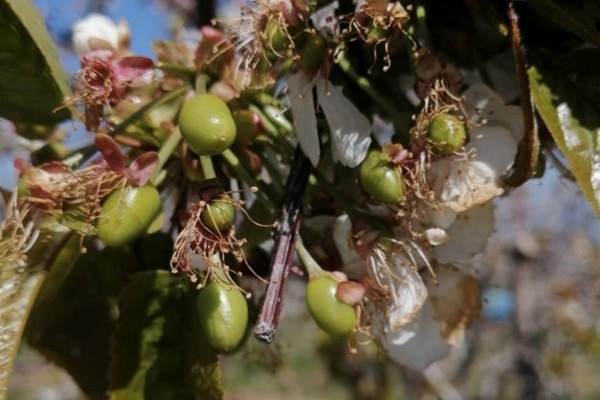The weather has been good for the cultivation of cherries, and the season could start slightly earlier than usual, says Sefik Can, account manager for Turkish fresh produce exporter Canlar Fruit: "The chilling period of about 1200 hours required by cherry trees in winter was realised in almost all regions. As of February, the climate is above seasonal norms. Especially in the Manisa and Izmir regions, where the first cherries are grown in the Northern Hemisphere, everything seems to be fine for the time being. In these regions, half of the trees have finished the flowering period and the fruit has started to appear. This indicates that Turkish cherries will meet our customers earlier than expected. We aim to start harvesting in the first week of May, if there are no unfavourable climatic conditions."

Volumes are expected to increase significantly and the overall season will be longer than in previous years, Can explains. "We see that our country and our company will exceed last year's cherry volumes many times over, in line with the product quality, the earlier than expected arrival of the product and the demands from our customers especially in Europe. Last year, cherry exports from our country took place from the last week of May to the first week of August. This year, if the cherries indeed arrive earlier than expected, there may be a supply period of almost three months."
 Logistically, using air freight will be preferred, especially with what's going on in the Red Sea, Can states: "Although the developments in the Red Sea in Asia affect the sea freight, Turkish exporters generally prefer the airfreight for the Middle Eastern and Asian countries in terms of the value of the product, especially for cherries. In addition, studies are continuing before the Ministry of Agriculture of the Republic of Turkey to export cherries to the Far East countries, especially China, and to overcome the procedures in question. We hope that there will be positive developments as soon as possible."
Logistically, using air freight will be preferred, especially with what's going on in the Red Sea, Can states: "Although the developments in the Red Sea in Asia affect the sea freight, Turkish exporters generally prefer the airfreight for the Middle Eastern and Asian countries in terms of the value of the product, especially for cherries. In addition, studies are continuing before the Ministry of Agriculture of the Republic of Turkey to export cherries to the Far East countries, especially China, and to overcome the procedures in question. We hope that there will be positive developments as soon as possible."
"The situation in the central region and the regions where the latest cherries are grown, where cherry cultivation is the most intensive, seems to be very good for the time being. Although there are some problems caused by global warming, due to the geopolitical structure of our country, cherry cultivation is not concentrated in a single region, but is scattered in many different regions. In our country, production is carried out in different regions starting from sea level up to 1800 meters altitude. This situation strengthens our hand at the point of product supply," Can concludes.
For more information:
Sefik Can
Canlar Fruit
Tel: +90 (242) 339 21 91
Email: [email protected]
www.canlarfruit.com
